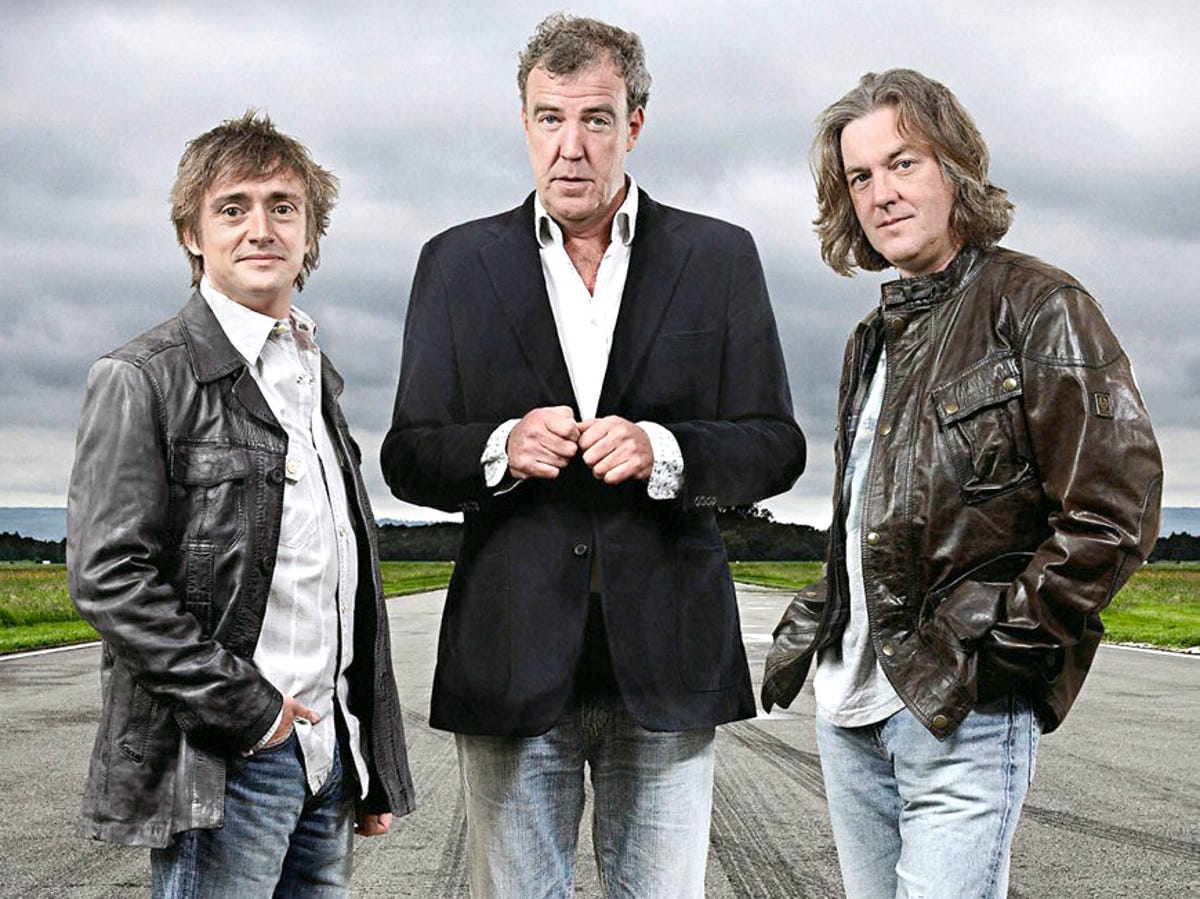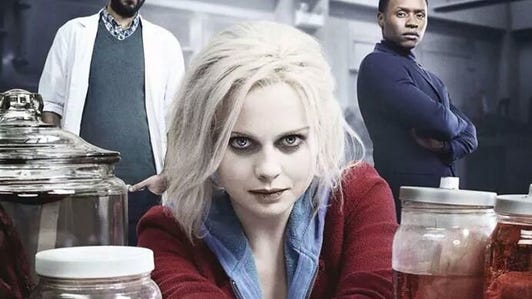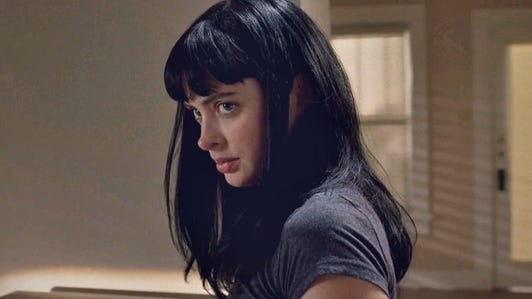
BBC
The head of the BBC’s moneymaking arm reckons its flagship motoring show will continue to be lucrative even after Jeremy Clarkson and friends’ departure. “I still remain confident about the future of ‘Top Gear’,” said Tim Davie, CEO of BBC Worldwide.
Speaking at the FT Digital Media Conference in London today, Davie refused to go into detail about how the recent “Top Gear” controversy would impact revenues, except to say the show’s revenue would continue to grow “over time.”
Since its reinvention in 2002, the long-running motoring show has become the BBC’s most valuable asset, a programme that’s sold worldwide and rakes in huge amounts of cash for the corporation (which doesn’t disclose exactly how much any given show makes). But that golden goose had its feathers ruffled in March this year when long-standing presenter Jeremy Clarkson topped previous controversies by punching a producer in a “fracas” over a sandwich.
More on the BBC
- BBC Three to move to iPlayer, freeing up space for BBC One +1
- Game over, man! Bill Paxton takes on Daniel Radcliffe in GTA TV show ‘Game Changer’
- See history get magical in BBC’s ‘Jonathan Strange & Mr. Norrell’ trailer
- Fantastic! ‘Doctor Who’ returned to TV 10 years ago today
Clarkson’s contract was not renewed, and his fellow presenters Richard Hammond and James May then declined to sign up for the new series. With the trio’s chemistry accounting for much of the show’s popularity, the programme faces a difficult time as it goes on an enforced hiatus before returning with new presenters.
Davie stressed that the “Top Gear” brand will continue and highlighted the localised versions made in France and China.
BBC Worldwide is a commercial subsidiary of the corporation, which sells BBC shows around the world and invests the money back into the BBC. One of the constant questions surrounding the BBC is its responsibility as a publicly funded body, paid for by license fees. Davie stresses that his goal is to ensure “sustainable returns for the license fee payer, and to build a media company that can do that.”
He challenged critics of the publicly funded nature of the BBC, saying, “Ask yourself, do you want commercial content or public service content? Looking at ‘Doctor Who’ and ‘Top Gear’, the programmes that we make most money from is those that are most distinctive.”
Davie proudly proclaims the BBC’s “towering strengths” to be “premium British broadcast drama and natural history”.
What’s in store for BBC Store?
The Beeb is working on making money from its vast archive of classic shows from its nearly century-long history with a new BBC Store, which will be available only in the UK. “Instead of going to [retailer] HMV you will go to the BBC Store,” says Davie. The store will connect an iTunes-style online store to the BBC’s catch-up and on-demand service iPlayer. So say you’re watching new episodes of “Peaky Blinders” on iPlayer, you can then click to the BBC Store to buy the first series.
Davie says the BBC Store will be in beta testing in June, and is expected to go live in late summer. “In Britain that could mean anything from mid-July to mid-October,” he admits, “but I’m going to say late summer.”
28 new TV shows to geek out over in 2015 (pictures)






With 92 years of TV and radio to choose from, there’s almost too much stuff in those BBC vaults. Not everything will be available at first, but Davie promises “thousands of hours” will be curated into collections so you can easily find what you’re interested in. “You’ll be able to go deep,” says Davie. “I’m quite excited editorially.”
This does raise the question of funding once again, in that many viewers will balk at paying for content they feel they’ve already paid for with their license fee — which is mandatory for anyone who watches TV in the UK. “We have to be utterly clear about what you’ve paid for with your license fee,” counters Davie. “We’ve commercialised content with HMV for years, and I think the value is exceptional for £145.50 [per year].
“But we need to be clear that what you’re paying for is the 30 days of content you get free at the point of delivery,” he said, referring to the 30 days after broadcast that programmes are available on iPlayer. “If you wanted to buy the lifetime rights for ‘Sherlock’ in the UK, that would be a very different price.”




